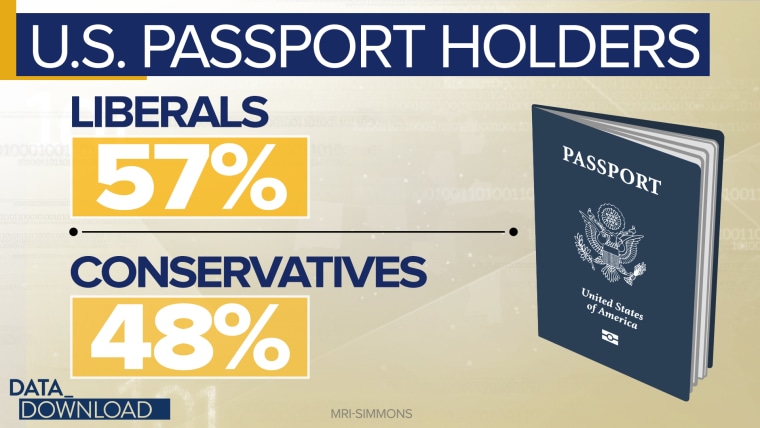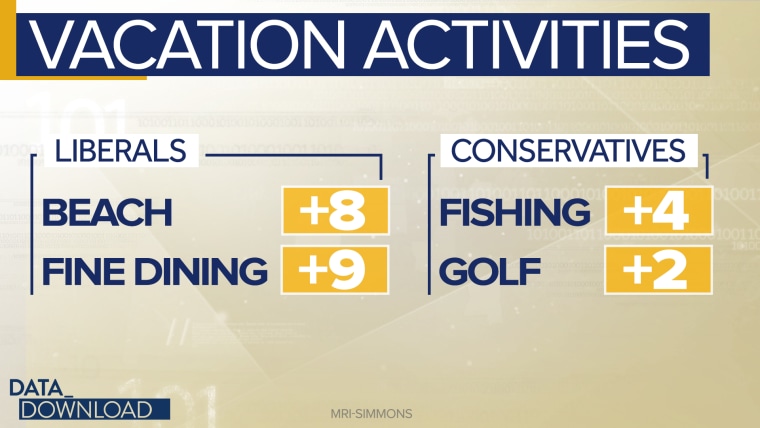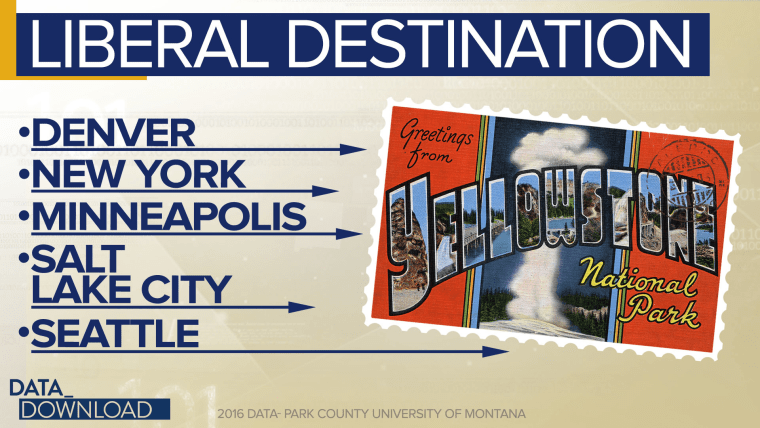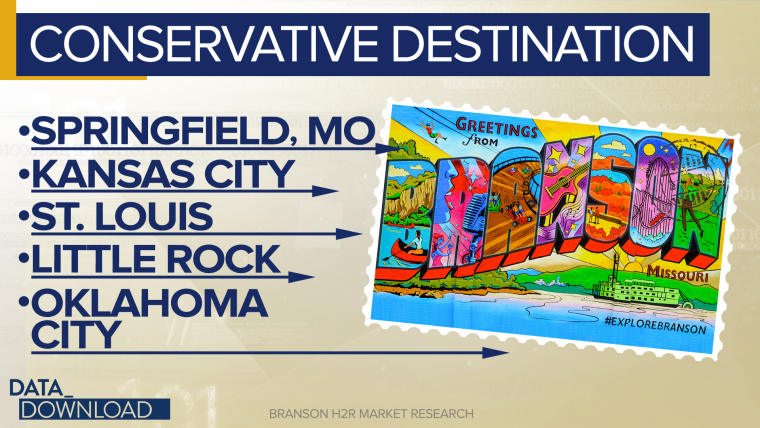WASHINGTON - With July 4th in the rearview mirror, we are officially into the season of summer getaways and escapes, but as with so many things, it may be hard to avoid partisan divide that defines the nation’s politics. Data from MRI-Simmons show how deeply the red/blue split runs through the culture, right down to how we vacation.
Start with that most basic measure: whether or not you can leave the country for your trip. The data show that people who self-identify as politically liberal are more likely to hold a valid passport than those who call themselves conservative, according to Simmons National Consumer Study, Winter 2019. (Courtesy of MRI-Simmons).

More than half of all liberals, 57 percent, say they have a valid passport, while slightly less than half of conservatives, 48 percent, say the same thing. That’s a fairly noticeable 9-point gap and it fits with other findings in the survey.
For instance, liberals are more likely than conservatives to visit a foreign country when they vacation and more likely to travel by plane when they hit the road.
But beyond the question of who is able to leave the country on vacation, there are noteworthy red/blue differences in what we like to do when we’re on a break.

Those of the liberal persuasion are more likely than conservatives to want to go to the beach to relax, by about 8 points. And they are more likely to favor fine dining, by about 9 points. Conservatives, meanwhile, show a somewhat smaller edge in their preference for fishing and playing golf.
To be clear there are probably a lot of factors driving these differences. Liberals in the survey are more likely to have college degrees and slightly more likely to have household incomes above $100,000. Those who identify as liberal also tend to be younger in the data. Those factors could definitely play a role in where and how we vacation.
But regardless of the underlying reasons, the data speak to the fundamental differences in the United States in 2019 between people who identify with either end of the political spectrum. In other words, those deep dissimilarities lay at the root of a lot of the tribalism that has come to define American politics and that has led to liberals and conservatives living in different realities.
To get a sense of how those differences play out, consider two well-known tourist destinations: Park County, Wyoming, the ski area on the eastern edge of Yellowstone Park, and Branson, Missouri, the family-friendly tourist hub in the Ozarks.

Park draws heavily from big cities, all of which voted Democratic in the 2016 presidential race and many of which are far enough away where air travel is the most likely means of transportation.

The list for Branson features smaller communities, many located close by and several of which voted for President Donald Trump in 2016.
That’s not to say there aren’t conservatives who visit Park or liberals that visit Branson. Clearly, there are. There is still some political cross-pollination in 2019 America when we take a break from our lives.
But the data show how the nation’s political divides have woven themselves into the fabric of our lives, even in ways you probably don’t consider. And, if nothing else, the numbers here might be an argument for breaking out of your usual routines this summer.
The nation’s political tribalism is already baked deeply into where and how we live. The data also suggest that tribalism follows us out onto the road.